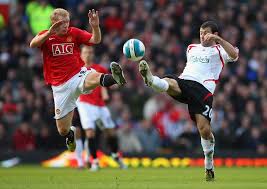
 |  |  |

Italian Serie A
Italy
The Italian Serie A.
Bologna FC vs Atalanta Bergamo
Official name Bologna FC 1909
City Bologna
Founded 1909
Club colors Red-Blue vertically striped / White / Blue
vs.
0 - 0
Atalanta Bergamo
Official name Atalanta BC
City Ciserano
Founded 1907
Club colors Blue-Black vertically striped / Black / Blue-Black
Match scheduled:
Date: 19-12-2009
Time:17:00 until 19:00
Week 17 / 17a Giornata :: Italian Serie A 2009/2010
After the first war, Bologna began to become more successful; first reaching the semi-finals of the Northern Italian competition in 1919-20, they went one better the following season by reaching the Northern League finals; going out 2-1 to Pro Vercelli. They would equal this again in 1923-24, coming runner up to (eventual National champions) Genoa.
Bologna became Northern and National League champions for the first time during 1924-25, beating Genoa CFC after five infinite final matches to take the championship. The finals against the Ligurian giants were characterized by heavy crowd troubles. A few seasons later Bologna became champions of Italy for the second time in 1928-29 giving them a foothold in Italian football, building up a legacy, this was the last time the league was competed in the old system, Serie A was instated the following year.
The Scudetto was won by Bologna four more times before World War II, these were achieved in; 1935-36, 1936-37, 1938-39 and 1940-41.
After World War II, the club was less successful. Throughout the 1950s and 1960s, the club generally floated between 4th, 5th and 6th position in the league, until they took the league title back in 1963-64. To date this remains their last Serie A championship, bringing the club's total to seven.
It was not all doom and gloom for the club however, in the 1970s they won the Italian Cup twice, the second of which was competed against Palermo, the game was tense and finished 1-1 beforing going to a penalty shootout, Bologna won the shootout 4-3.
The club was founded in 1907. A football club had existed in Bergamo since 1904. Founded by Swiss wealthy immigrants, it was known as FC Bergamo. The rival Atalanta club grew out of a division between different sporting societies in the town. The name is taken from the female athlete of Greek mythology. The FIGC was unimpressed with the new club and did not officially recognize them until 1914. The current club is the result of a merger between Atalanta and a third team called Bergamasca. The first, black and white coloured and the second wearing a blue and white shirt, merged in 1924 as Atalanta Bergamasca di Ginnastica e Scherma 1907. The team moved to the site of the current ground, on the Viale Giulio Cesare, in 1928.
Atalanta joined the Italian league in 1929. The club first reached Serie A in 1937, but was relegated immediately. The club returned in 1940 and remained in A until 1959; after a single season in Serie B the club was promoted and lasted a further decade in A, before relegation in 1973 led to an uncertain period of promotion and relegation between the two levels.
The club achieved its highest position in 1948, finishing in 5th place. In 1981 the club fell into Serie C1, a blow which revitalised the club. The team returned to B the next season and made it back to A in 1984. The club's form in Serie A remains uncertain, as it was relegated in 1987, 1994, 1998, 2003 and 2005.
In terms of titles the club has won little, their sole silverware is the 1963 Coppa Italia. The club has had very few good runs in Europe, the best spell ending in a Cup Winners' Cup semi-final in 1988; in 1991 Atalanta reached UEFA Cup quarter-finals.
 |  |  |
The club's youth system has produced many successful players, such as Roberto Donadoni (Italy national team coach from July 2006), Alessio Tacchinardi, Domenico Morfeo, Giampaolo Pazzini, Riccardo Montolivo, Ivan Pelizzoli, and Samuele Dalla Bona who have quickly been grabbed by the bigger clubs. Other players who have graced the Atleti Azzurri d'Italia include Claudio Caniggia, Glenn Strömberg, Alemao, Paolo Montero, Christian Vieri, Filippo Inzaghi, Gianluigi Lentini, Cristiano Lucarelli, Cristiano Doni, and, in the past, Stefano Angeleri, Adriano Bassetto, Antonio Cabrini, Angelo Domenghini, Humberto Maschio, Mario Mereghetti, Giuseppe Savoldi, and Gaetano Scirea
 |  |  |










